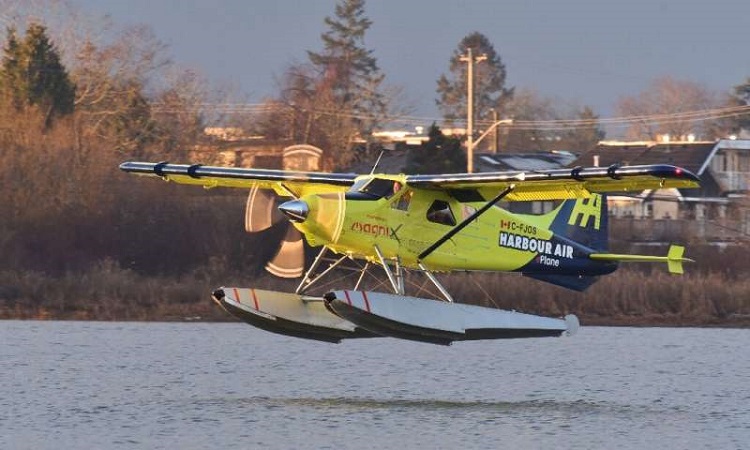The world’s first fully electric commercial aircraft made its first test flight this Tuesday over Vancouver, Canada.
With more than 13 gigatonnes of CO2 emitted in 2016 worldwide, the transport sector is the second largest contributor of greenhouse gases in the world. Trucks, buses and other cars are responsible for three-quarters of these emissions. Then come the planes. Overall, it is estimated that air transport is responsible for around 3% of the world’s CO2 emissions.
In our fight against global warming, many efforts must focus on land transport modes. We are thinking in particular of the development of electric or hydrogen engines, considered less polluting. But the aviation industry must not be forgotten. And there is everything to do. The example could then come to us from Canada.
“The beginning of the electric aviation era”
For several years the engineering company magniX, based in Seattle (United States), has been developing electric motors for aircraft. It recently signed a partnership with Harbor Air, which carries more than 500,000 passengers a year between Vancouver, the Whistler ski resort and neighboring islands and coastal communities.
Together, these two companies equipped a Beaver DHC-2 seaplane, capable of carrying up to six passengers. This Tuesday (December 10), the machine made its first test flight in front of an audience of journalists. It lasted only about 15 minutes, enough time to make a short loop along the Fraser River near Vancouver International Airport. And everything went very well.
“This is the start of the electric aviation era,” said Roei Ganzarski, president of magniX.
Greg McDougall, founder and managing director of Harbor Air, who piloted the aircraft, now aims to equip his entire fleet (40 seaplanes). Note that the batteries of this aircraft only allow a range of 160 km. However, this is more than enough to cover a large part of the company’s short-haul flights.
Today, we made history. Launching the world’s first electric commercial aircraft retrofitted with a 750 horsepower all-electric magni500 propulsion system. Thank you to our amazing maintenance team and our partners at @MagniX for all your efforts! Together, we did it! 👏 #ePlane pic.twitter.com/Rhw35BRnqB
— Harbour Air (@HarbourAirLtd) December 10, 2019
In addition to making a gesture for the planet, he also points out that the company should save millions in maintenance costs because “electric motors require considerably less maintenance,” he said. He also hopes that this inaugural flight can inspire other companies.
The magniX company, meanwhile, now aims to perfect its engine and develop others allowing longer flights. This is just the beginning, but as Ganzarski points out, it is “enough to start the revolution.”




